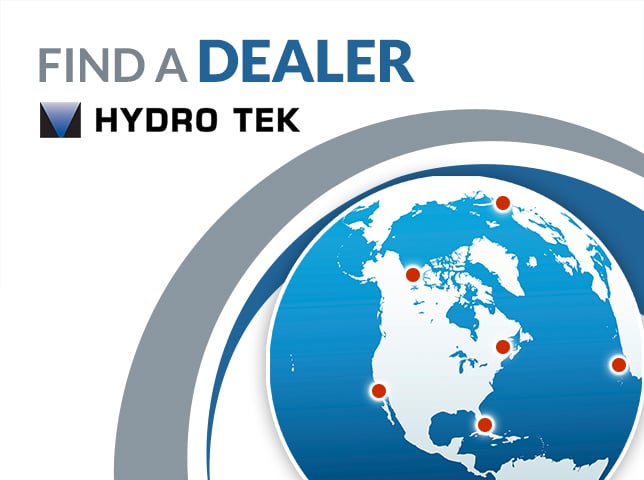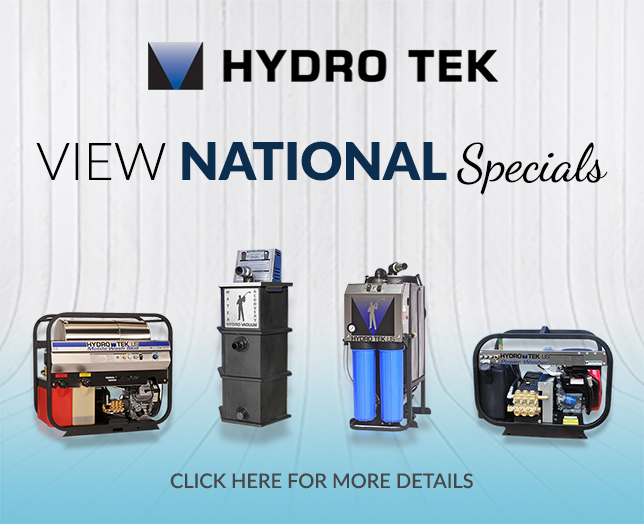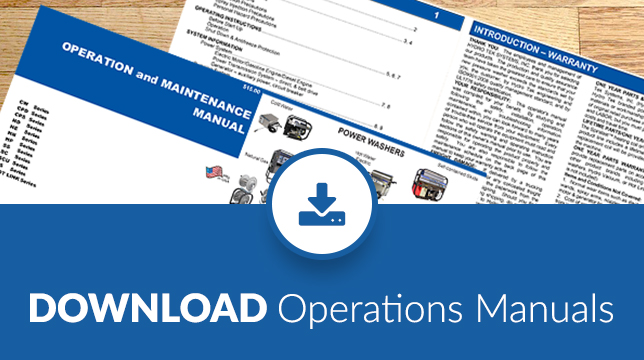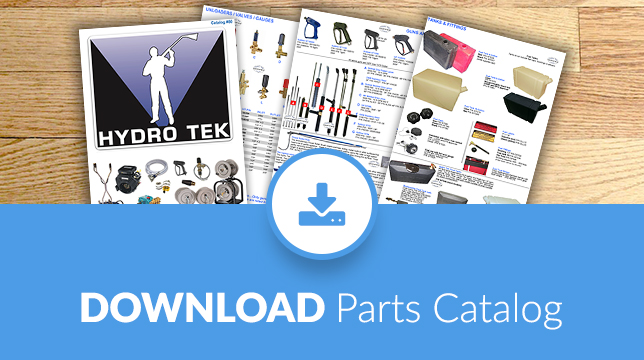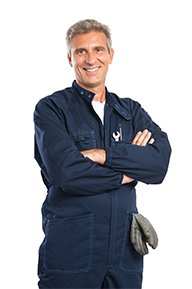Is more pressure better? People who pressure wash occasionally will often select a pressure washer with the highest spray pressure without considering flow which typically delivers less than ideal cleaning results. In the pressure washer industry, we have seen a trend that the more popular selling models have more pressure and less flow except with the professional contract cleaners who understand the efficiency of their equipment better because they use it every day. For instance, 4 gallons per minute at 4000 psi popular with the average user but a professional cleaning company will select a 5 gpm model at 3000 psi to complete the job faster even though both professional pressure washers have the same horsepower. Another problem with excessive pressure is that without proper experience and operator training, the surface may be damaged instead of cleaned.
Proper balance of flow and pressure: With a given amount of horsepower, a pressure washer design will result in a tradeoff between pressure and flow. The terminology used for this measurement is “cleaning units”. Cleaning units is calculated simply by multiplying pressure (psi) times flow (gpm). For example, a pressure washer with a 2 horsepower electric motor is capable of producing 3000 cleaning units. A pump could be selected for output of 3 gpm at 1000 psi. If the design criteria called for more pressure, a pump would be selected for 2 gpm at 1500 psi. Both have the same amount of cleaning units (3000) but vary significantly in pressure. So which is best? In most applications the 1000 psi unit would clean more efficiently even though it has only two thirds the pressure. So then why not up the flow to 4 gpm at 750 psi or up the pressure to 3000 psi and drop the flow to 1.5 gpm as we have enough horsepower to make that work also? I will get into the science behind that in a minute but for a quick “rule of thumb” the best balance of flow and pressure for optimal cleaning efficiency revolves around using a machine designed to run around a #5.5 orifice spray nozzle. For instance in gpm @ psi: 5.5 @ 4000, 4.8 @ 3000, 4 @ 2000, 2.8 @1000 would be the ideal pressure washers to look for.
The science behind the cleaning: The impact force of the water spray gives us some insight on the proper balance of pressure and flow. 5.5gpm @ 4000psi produces 18.3 (lb) of impact force while 3.5gpm @ 4000 produces 11.6 (lb) of impact force and you could expect over 50% faster cleaning with the same 4000 psi of pressure. That speed can be the difference between making money and a loss on a job that is bid at a fixed price. Now let’s also compare the impact force of 3000 and 4000 psi that use about the same size motor and is between 14,000 and 15,000 cleaning units. The 3000 psi machine can put out 5 gpm while the 4000 psi machine has to be cut back to 3.5 to 4gpm in flow. The 3000 psi machine has 14.4 (lb) of impact force which relates to 10 to 20% faster cleaning than the 4000 psi while using a similar amount of horsepower and fuel. So this tip alone can save you about 15% in fuel and time plus you will find that the lower pressure models have less expensive replacement parts, will have less failure, and can be less damaging to the surface being cleaned. A popular size for small gas engine pressure washer is around 6000 cleaning units. Don’t be fooled into buying a 3000 psi machine with a small engine on it or you will only get about 2 gpm and 6 (lb) of impact force. You are much better off with 2500 psi or less and more flow (2.5 to 3gpm) which will deliver 8 (lb) of cleaning force.
How much is too much impact force? The impact force is equal to the reaction force against the person holding the gun/wand. Once you get above 20 (lb) of reaction force the operator will fatigue rather rapidly and maintaining control of a handheld gun could become a safety issue. The Hydro Tek 5 gpm @ 5000 psi requires about 18 (lb) of reaction force from the operator to hold the gun. The large 9gpm @ 3500psi pressure washers we make will produce up to 28 pounds of force but are designed with 2 guns for dual operators to cut the reaction force in half. If there is a downward bend on the end of the spray wand, the reaction force will be in an upwards motion instead of straight back which will fatigue the operator even sooner. It is also important to note that on hot water pressure washers, the heat will amplify the performance of the higher flow washer and multiply the cleaning results exponentially when compared with a lower flow pressure washer.




